work
Jul 16, 2025
The Magic of Your First Work Friends
Early in-person work is a path to self-discovery
9 min
read
Summary
In-person work has a profound impact on personal development, which has been eroded in the wake of widespread Post-Covid remote work adoption. The spontaneous interaction and relationship-building that physical presence at the office once fostered are now largely gone, removing an important source of self-awareness, personal development, and our sense of belonging. While productivity can be achieved remotely, the deeper human aspects of work — trust, purpose, and self-discovery — are best cultivated through in-person engagement.

Photo by Vitaly Gariev on Unsplash
Article Voiceover
AI Reaction Audio
Sitting in our office in late July 2022 we were in the throes of the final office relocation proceedings. Our lease was up and we were not renewing, Covid having by now obliterated our in-office work norms. The workplace I’d called home for 14 years would no longer be ours. A month later, we executed a major step in our company succession plan by joining 3Pillar Global, and moved to the much smaller space upstairs, which itself is more than we currently need.
At the time I couldn't help but feel a bit sad that we would no longer have our main space. So much of my work history had been tied up in Jonah Group, and so much of Jonah’s history was associated with that office, which we’d inhabited since 2008. There, we tested our mettle on tough projects and celebrated many triumphs together as a team. The office was a place to meet, chit chat, socialize, and inhabit with all of our clubs, social nights, and lunch-time tech talks.
Many companies now allow staff to work remotely full time, including our new parent, though not all staff of our branch offices around the globe work remotely. In particular, our Czech delivery centre prefers in-office work, and many team members do attend in person every day, or a few days a week. It's interesting that when permitted to independently define their own culture and practices, different centres choose differently.
In the Toronto office, we have in large measure settled into fully remote work, though a small number of folks (including me) still go into the office. This has me wondering about the effect that this relatively new work style will have on our relationships, ourselves, and the company at large. Our reduction in office space and the hybrid / remote working world we now live in is a flashpoint for all of this.
Indeed, this has happened on a massive scale in the global community. I worry about those in the early stages of their careers; those who have yet to establish the lasting work relationships that carry us all through in our lives. Our working lives place us together in a multitude of unpredictable scenarios that help us to understand who indeed we even are.
Shared struggle on client projects for the benefit of the company, in-person conversation, lucky discovery of one another around the water cooler or in other public spaces in the office, and impromptu hangouts in the bars and restaurants after work; these half chance, half intentional interactions over the long term — and the personal discoveries that result — give us a framework for understanding ourselves and our place in the world. Indeed, there are theories that we can’t even be self-aware until we first begin to understand other people.

AI journeys toward self-awareness by looking in a mirror - Digital Engine (YouTube), 2023
And here's a surprising development on self awareness, often considered the highest form of consciousness. To test for it, researchers stealthily put a bit of color on an animal's head and then put it in front of a mirror. If the animal tries to rub it off, it's self aware. Only the most intelligent animals could do this, including chimps orangutans, elephants, magpies and dolphins.
But there were some strange anomalies - pigeons, manta rays and ants also passed the test. Then something happened that changed the picture entirely. These monkeys have consistently failed the test. But here they are inspecting their bits in the mirror. They clearly recognize themselves. A laser dot helped them make the link, and they then began to pass the test.
…
One theory is that we became self aware when we had to understand what was going on in other people's minds. To do this, we needed to build a model of the mind, or a mirror, if you like, to observe our own experiences.
And this mirror is what we consciously experience — a simulation of reality.
Evidence for this includes the fact that among primates, the neocortex grows with the size of the social group. Whether AI becomes self aware suddenly or gradually may depend on how long it takes to develop a simulation of itself.
The experiment described above suggests that interactions with the world, and other people, strongly influence our own mental model of ourselves. Indeed, consciousness itself seems inextricably intertwined with an understanding of the world and our place in it.
In my mind, this self-discovery effect of in-person work is doubly important for those just entering the workforce, as so well described in this recent New York Times article, entitled “The Magic of Your First Work Friends” (from which I cribbed my title).
“There’s an electricity to forming that first close friend at work. It’s the thrill of staying too late at drinks to keep giggling. It’s the delight of darting to someone’s desk and dragging her to the bathroom to gossip. It’s the tenderness of showing up to work on a rough morning and realizing a co-worker will know instantly that something is wrong.
…
You’re a different person every minute when you’re in your 20s, but these friends really were crystallizing the person I wanted to become”
- Emma Goldberg, New York Times, July 14, 2022
Admittedly, many of the “old-timers” at Jonah Group in the pre-Covid era had less of a need for this, because we did work together for a long time, meeting and learning about each other on our way to becoming our old and crusty selves.
It doesn’t take a lot of foresight to see how the resulting shared sense of belonging can be whittled away over time the longer we remain remote. Zoom calls, which happen purely to advance some work goal, simply don’t establish relationships in the same way. Not only that, but as a relationship-first company, our cultural identity depended on it. It was a big part of how Jonah Group differentiated ourselves in the market. Our mantra ("We build great software, and great relationships.") had been reinforced as incredibly valuable by our clients on numerous occasions in the testimonials they gave us. Our employees may not even have realized how important that was to our clients, but it was. Our relationship focus helped us to easily bridge the divide between the two organizations whenever we encountered difficulty.
I think this is because strong relationships are a precursor to trust, which itself provides the emotional safety we need for the outward exploration of the (sometimes difficult) truth about our work and ourselves. Only with an understanding of this truth can we expect to make good decisions, and further, derive meaning and purpose from it.
Our workmates act as mirrors of self-discovery, and within the context of a shared struggle at work, the benefits of our connections radiate outward all the way to holy grail of purpose, i.e. why we are all doing this together in the first place. Strong relationships are not only at the root of great work, but more broadly they allow us to express ourselves and extend ourselves outward into the world, overpowering the creeping tendency toward isolation that we feel without them.
Obviously, Covid has not been helpful here. Try as we did during the pandemic, it had always seemed a bit silly to me for the management team to concoct scenarios in which people would “naturally” become closer to one another. While the scheduled zoom game nights were fun, it wasn’t really what we were after. To realize the greater benefits of relationships, the mystery of human chemistry requires that we choose to get to know our workmates: to be human beings to one another, as opposed to simply workers, or worse: pitch machines.

A human being or a marketing rep? The Big Kahuna (YouTube), Dec 2009
That means that you preaching Jesus is no different than Larry or anybody else preaching lubricants. It doesn't matter whether you're selling Jesus or Buddha or civil rights or how to make money in real estate with no money down. That doesn't make you a human being. It makes you a marketing rep.
If you want to talk to somebody honestly, as a human being, ask him about his kids. Find out what his dreams are. Just to find out, for no other reason. Because as soon as you lay your hands on a conversation, to steer it, it's not a conversation anymore. It's a pitch. And you're not a human being. You're a marketing rep.
There's always an underlying business agenda behind a work-focused video meeting. While this is necessary and appropriate, it's quite a bit different from a conversation that unfolds between the same group of people around the watercooler, with no such agenda. There are other ways to develop personal understanding without being face-to-face; going through a shared struggle on a project, for instance. But meeting in person might be the best way to get there.
Pre-Covid, at the office we had game nights, salad club, dessert club, chili and scone cook-offs, podcasts, poker, and pub nights. All of this sprang up organically, not from some top-down HR program to generate a sense of engagement or belonging. We used to call ourselves “The Fat Group” because we ate all this food together. We laughed our asses off with Exploding Kittens and Bomberman. And we somehow formed a band that sang and played together at the holiday party each year. But the delicious food, fun, and laughs (and getting fat) were side effects of being together; simple as that. That’s not gonna happen on Zoom.
I am tremendously grateful for the organizers of these events and all who participated. They were the superheroes of our culture, and together we were the community who fed and protected it. Culture is not a list of values on a wall. It’s something a group of people implicitly adopts and promotes because the people within it identify with, and relate to, each other.
A colleague once remarked to me that the annual holiday party was one of the only company holiday parties they’d ever actually enjoyed attending. When I pressed them on why, the answer was “open bar, a small number of speeches, and hanging out with workmates I like.”

Friends at one of the Jonah holiday parties
#1 and #2 are easy. In fact, those two things can be had at home. But hidden within #3 is the requirement for good relationships developed before the party. “The workmates you like” transform office parties from ”things I’d rather avoid” to “things I really want to do.” That’s no small thing. Indeed, it’s the same transformation we want to achieve with every other activity in our lives.
This is the real answer to the question “why would I make the commute?” “Productivity” is not the only measure of success in the workplace. It's not about that, nor some outdated notion of attendance tracking or work surveillance. Don’t cede this pot of gold by spending most of your working life in isolation. Of course, we all want a nice salary, but additionally a healthy and fun culture, meaningful work, and maybe even some close friendships are also what we’re after in the end.
Are you feeling at all disconnected from your colleagues? Are you trying to connect more deeply to the purpose of your work? Feeling that you're "not in the right place?" Make a point to have a regular one-on-one or small group non-work-related zoom call just to check in or perhaps commiserate about difficulties you're having on your team. Consider going in to work a few days in the month. If you have people you want to see, actively collude to bring them in on the same days. We're hoping a new grill we just bought for the rooftop patio will be an effective lure, but your office might have some other draw. Call people in for the day to get together for lunch or after-work games. Hit a patio, grab a bite and a drink, and ask them about their family. You might discover something new about them, and about yourself.
——————————
Voiceover Music from #Uppbeat (free for Creators!):
https://uppbeat.io/t/paul-yudin/at-the-hotel
License code: OTBWFQLHR7WNFPLQ
——————————-
AI Reaction Music from #Uppbeat (free for Creators!):
https://uppbeat.io/t/mountaineer/juciest
License code: GQ2EWKPRDKOQBNCK






